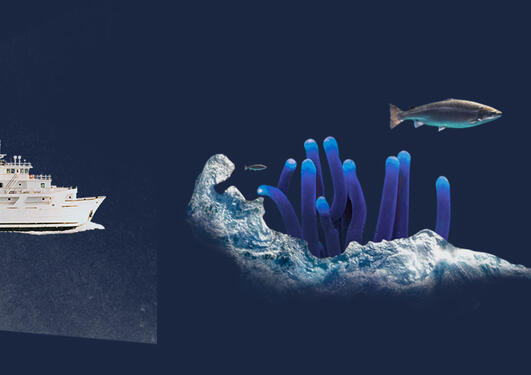Research possibilities for the SEAS postdoctoral research fellow in coastal ecology
The information on this page is a supplement to the complete advertisement of the position in the recruitment-portal Jobbnorge. The full advertisement of this position in Jobbnorge will be available after august 1, and linked from this webpage. Call deadline is October 31, 2021.
Main content
Position | SEAS postdoctoral research fellow at the Department of Biological Sciences |
Research area | Coastal ecology of macroalgae: adaptations and interactions in a seasonal environment with multiple anthropogenic stressors |
Supervisor-team | Professor Kjersti Sjøtun and Professor Øystein Varpe |
Mobility | For an incoming candidate |
Unit of employment | Department of biological sciences (BIO) at University of Bergen |
Group affiliation(s) | Marine Biodiversity Group/Theoretical Ecology Group |
Thematic area and supervisors
This position is connected to coastal ecology with a focus on macroalgae and their abiotic and biotic interactions, including anthropogenic stressors. Emphasis is put on their adaptations to the seasonal environment of temperate and high-latitude coastal systems and the seasonal dynamics of these prominent primary producers and foundation species. The position is open to an incoming candidate, see mobility rules. The successful candidate will be employed at the Department of Biological Sciences. Information about the supervisors, research groups and research possibilities for the fellow is available below. For further details about the research possibilities please contact Professor Kjersti Sjøtun and/or Professor Øystein Varpe.
Research possibilities and resources
The research topic: This position is connected to coastal ecology with a focus on macroalgae and their abiotic and biotic interactions, including anthropogenic stressors. Emphasis is put on their adaptations to the seasonal environment of temperate and high-latitude coastal systems and the seasonal dynamics of these prominent primary producers and foundation species. Understanding the ecology and evolutionary adaptions of macroalgae, and the trophic interactions they are part of, is key for sustainable use and management of coastal ecosystems. Relevant model species will be selected as reference points and for deeper investigations. The research will rely on field studies along the Norwegian coast, potentially combined with experiments, molecular analyses, modelling, and comparative work which could include field work in other regions.
The supervisors: Professors Kjersti Sjøtun and Øystein Varpe, both at BIO, will be supervising the fellow.
Prof. K. Sjøtun has a background in marine biology and macroalgae. She has an extensive experience with field work and experimental work. She has been involved in monitoring of kelp harvesting, and in projects on anthropogenic impact on the coastal community biodiversity changes of macroalgae. She has also experience with molecular analyses.
Prof. Ø Varpe has a background from evolutionary ecology, with particular attention to life history strategies and adaptations to seasonality. Varpe mostly works on marine organisms and their ecological interactions, and his projects and research span a wide range of species and functional groups, from primary producers to apex predators. Varpe works in the field as well as with theoretical models and data-analyses.
Research opportunities and infrastructure: BIO offers a rich and stimulating research environment within a broad range of topics. Particularly relevant research groups for the candidate include: The Marine Biodiversity Group, where Sjøtun is member, the Seasonal Ecology Group (an umbrella for Varpe’s projects and mentoring) and the Theoretical Ecology Group where Varpe also is part. Furthermore, for administrative and teaching related aspects, the position falls under the Fisheries and marine biology group. BIO offers a wide range of relevant infrastructure including: the marine field station at Espegrend with laboratories, boats, and ample opportunities for field studies; experienced technicians for assistance during lab and field work; research vessels and ship-time on these; specialized laboratories at the main campus, including a DNA lab.
Opportunities for collaboration: Sjøtun and Varpe has a large network with many collaborators that may be of interest for the candidate and of relevance to the project topic, such as partners at University of Gothenburg, Stockholm University, University of Algarve and Woods Hole Oceanographic Institution. They also have collaborators at partner institutions within Norway, placed along the coast, from the very south and north to Svalbard. The supervisors also have contacts with the industry, for instance with seaweed farmers, and in institutions closer to management and policy, such as the Institute of Marine Research. We also envisage rich opportunities for cross-disciplinary collaborations within UiB, for instance towards the Bjerknes Centre for Climate Research or towards work on implications for regulations together with the Faculty of Law.
Teaching: BIO has a wish to facilitate teaching opportunities for the candidate and on topics related to the proposed research topic. The applicant can apply for up to one year extension if qualified to teach in relevant courses at BIO.
See the full advertisement in Jobbnorge
The full advertisement in Jobbnorge will be available after august 1, 2021. Call deadline is October 31, 2021.
